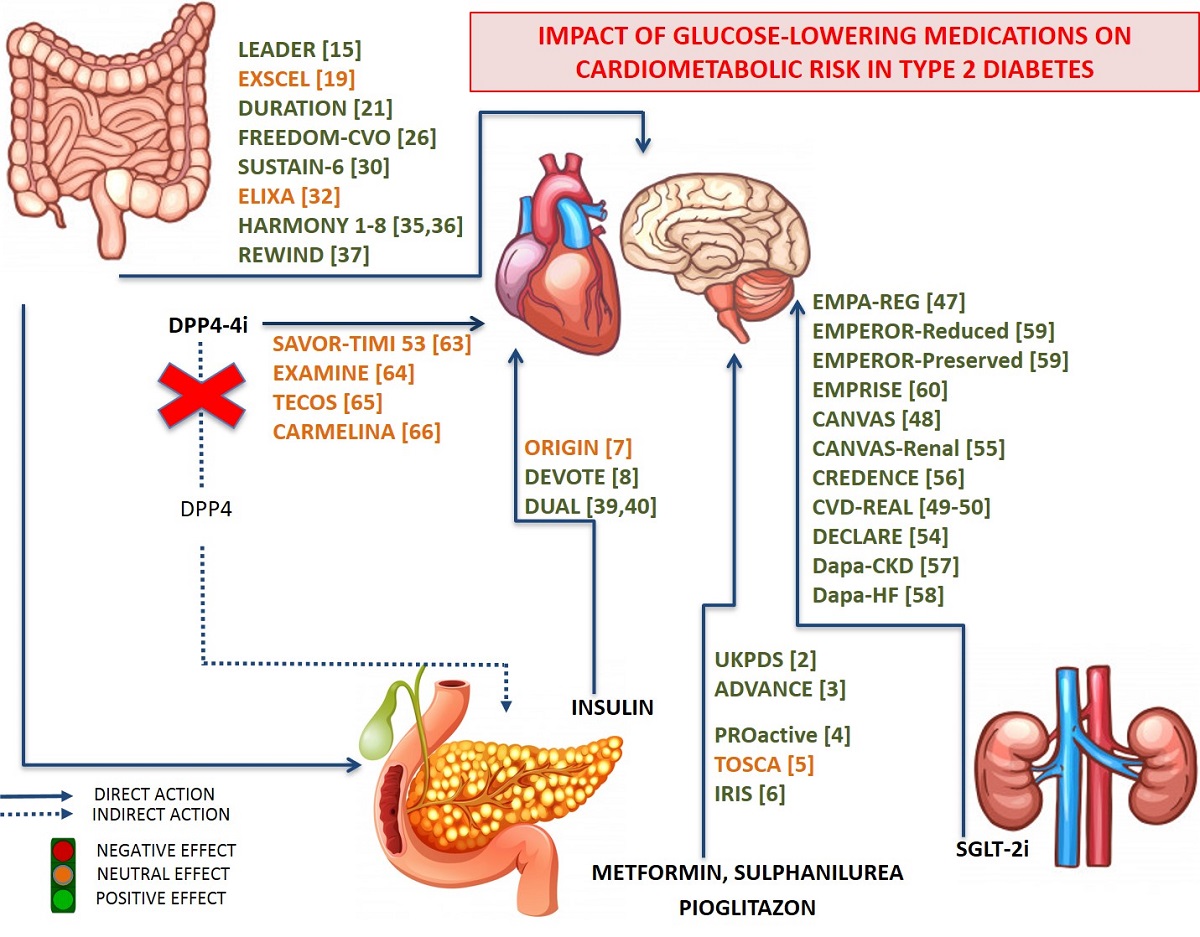Type 2 Diabetes Mellitus (T2DM) is associated with a high risk of atherosclerotic cardiovascular (CV) disease. Contributing pathophysiologic factors include endothelial dysfunction caused by excessive production of reactive oxygen species (ROS), increased activity of nuclear factor kB (NFkB), altered macrophage polarization, and reduced synthesis of endothelial progenitor cells (EPC). Consequently, there can be a potentially rapid progression of the atherosclerotic disease with a higher propensity to unstable plaque, leading to increased cardiovascular mortality. Management is aimed at prevention, early diagnosis, and treatment of hyperglycemia and vascular complications. Innovative therapeutic approaches for T2DM seek to customize the antidiabetic treatment to each patient in order to optimize glucose-lowering effects, minimize hypoglycemia and adverse effects, and prevent cardiovascular events. The newer drugs (Glucagon Like Peptide-1 Receptor Agonists, GLP-1 RAs; Sodium GLucose coTransporter-2 inhibitors, SGLT2is; DiPeptidyl Peptidase-4 inhibitors, DPP4is) impact body weight, lipid parameters, and blood pressure, as well as endothelial function, inflammatory markers, markers of oxidative stress, and subclinical atherosclerosis. The present review summarizes the results of trials that evaluated the cardiovascular safety of these drugs and found them to be safe from the CV standpoint.

